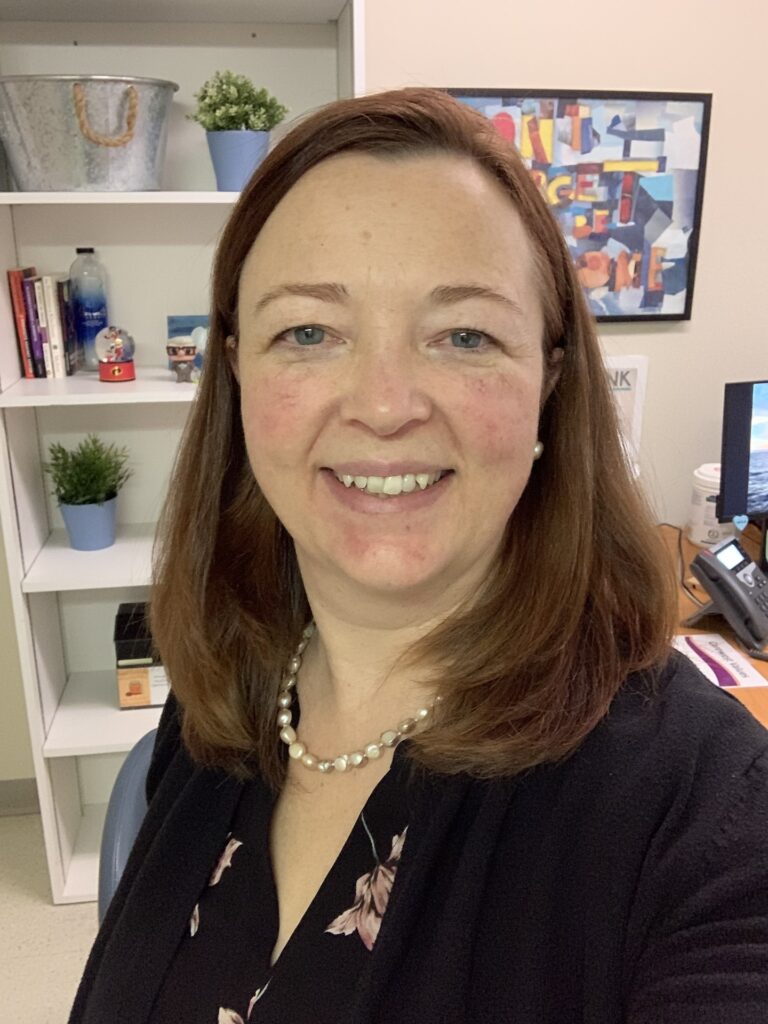Nursing has been a profession that’s been passed down in Carol Anne Friesen’s family. Having strong female role models in her mother, grandma and aunt who were all nurses, she found a natural gravitation that pulled her towards becoming a nurse as well.
Carol Anne is currently the manager of the Complex Long-Term Care Unit at the Carewest Dr. Vernon Fanning Centre. In this role, she oversees two programs and has 120 people from a variety of disciplines that report to her.
Carol Anne decided to pursue a Master of Arts in Leadership with a health specialization so she could further her skills as a nursing leader. She sees the significant difference she can make for those living in care, primarily seniors, who can’t advocate for themselves and often don’t have family to do so.

She was awarded the Florence and Lloyd Cooper Alberta Registered Nurses Educational Trust (ARNET) Scholarship for the excellence she’s shown in pursuing her Master’s program. Education advancement and research is one of Calgary Health Foundation’s priority areas in enhancing healthcare for our community.
“I have spent the vast majority of my career serving this often disadvantaged population of Albertans, while striving to ensure excellent client centered outcomes through nursing best practice,” Carol Anne said.
Over and above all the responsibilities and tasks she has in her role, her goal is to coach and mentor her staff, so they can give the safest and most effective client-centered care within the context of what they’re able to provide. She wants to ensure there’s always safe staffing and tries to build relationships with the people that live on the unit, both with the clients and their families.
“I want to ensure clients feel safe and cared for. Being in long-term care isn’t what people hope for in life, but for us to care for them, I feel is a huge honour and responsibility.”
Her research project is centered around trauma-informed leadership and approaches. After coming out of the pandemic, she felt that society and particularly those who worked in healthcare had gone through significant trauma that hasn’t been fully recognized.
Carol Anne’s research question is, “How can I lead in a more trauma informed way?” She is confident that in going through this program, she will be able to influence trauma informed leadership and ensure she can help mentor and lead her staff to be successful.
When she first found out that she had won the Florence and Lloyd Cooper ARNET scholarship, she jokingly told her husband and three adult children, “I just won a rollerskating scholarship! I am truly so proud and humbled.”
Carol Anne recalls going to Lloyds Roller Rink, and having that memory, while receiving a scholarship from the Cooper family is very special to her. The funds have allowed her to reduce the level of financial burden on her family. It’s given her more time to research and study, as well purchase supplementary textbooks that cover trauma informed practice.
“This scholarship and pursuing further education has already changed the way I approach leadership.”
Receiving the scholarship has been validating for Carol Anne, who like many of us, has felt at times like she has imposter syndrome. When she received the email notifying her that she had won the scholarship, she thought, “Wow, I really do have something to bring to the table. It was humbling and it really encouraged me that I am on the right track.”
Knowing the partnership with Calgary Health Foundation, and being a Carewest employee, she felt it was even more special to be recognized by her peers.
Working at Dr. Vernon Fanning Centre has been very rewarding to Carol Anne. She sees long-term care being special because she’s become part of each client’s family. As she’s worked in both acute care and long-term care, she sees the difference that long-term care has. There’s less turnover of clients and she really gets to know who she’s caring for.
One of the programs she oversees serves clients between 18-64 years old. Some of the patients live on the units for a long time, allowing staff to really get to know who they are as a person. For Carol Anne, being able to make these relationships, is what stood out for her on why she chose to stay in long-term care.
“It’s rewarding to build relationships with residents and clients that we care for, and to be able to make a difference in their lives. It’s rewarding when staff get recognized for the amazing care that they give, and as a manager, to be part of that in the background.” For Carol Anne, being able to lead her team so they can best care for their clients, is one of the most fulfilling and impactful aspects of her job.


